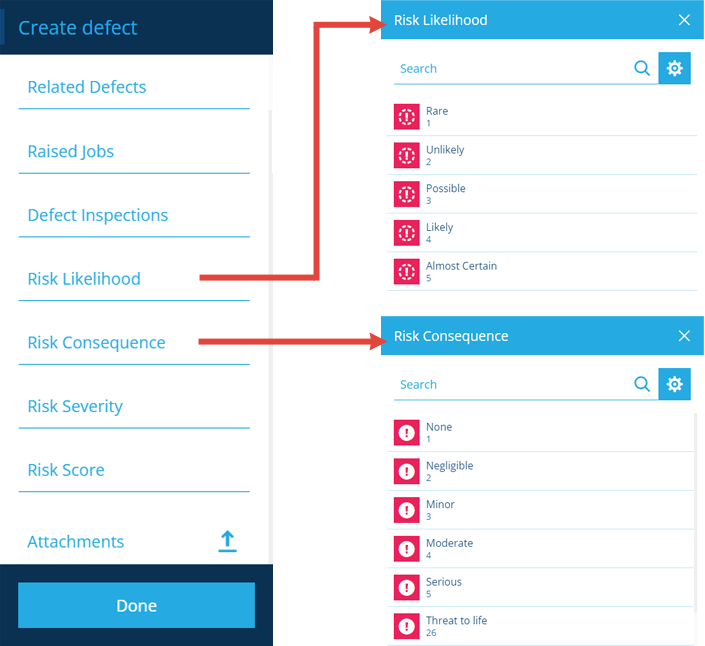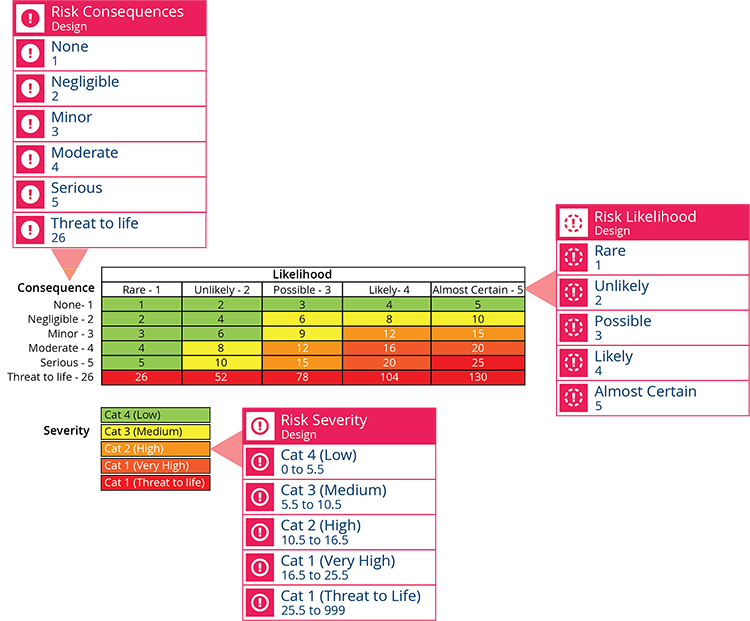Using risk designs
Define your risk assessment model
If your organisation uses the optional Risk Assessment module, you can incorporate risk data into your defects.
The module includes three risk designs:
-
Risk Likelihood - a numeric rating scale of how likely something bad may happen.
-
Risk Consequences - a numeric rating scale of how bad the impact could be.
-
Risk Severity - the level of risk, determined by the risk score.
By creating items of these designs, you can define a risk assessment model that's suitable for your organisation.
A defect's Risk Score attribute is calculated by multiplying its Risk Likelihood and Risk Consequences values.
Example models
The following tables illustrate two examples of risk assessment models.
Create items to define the scales
For the Risk Likelihood and Risk Consequences designs, create items to represent the possible number values of each scale. When someone creates or edits a defect, they can set the corresponding attributes by choosing an item from each list.
For the Risk Severity design, create items to represent the possible levels of severity. Each level must have a minimum and maximum value to represent a risk score range. When someone creates or edits a defect, its Risk Score attribute will be calculated automatically and the Risk Severity attribute will be set accordingly.
Example model with items
This illustrates the relationship between risk designs and their associated items within an example risk assessment model.


